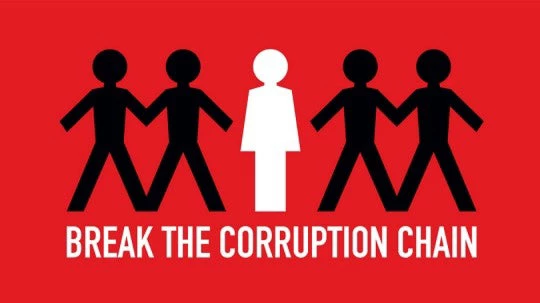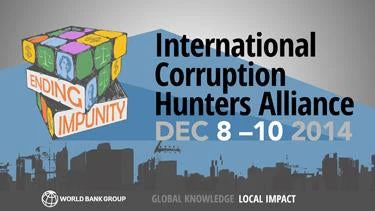After the drama, the dénouement. Crisis-watchers who were riveted to last week’s continuous flow of breaking-news bulletins from Brussels – as the European Union and Greece furiously negotiated (often through diplomatic feints and calculated disclosures to the press) a fragile accord on the latest stages of Greece’s debt crisis – are now awaiting the next high-intensity, high-anxiety step in the prolonged process: the scrutiny of the list of proposed reforms that Greece has agreed to submit to still-wary EU officials by Monday.
Whether this week’s list of proposed reforms, being drawn up by Finance Minister Yanis Varoufakis, proves to be enough to satisfy the skeptics in the Eurogroup is the next question for Eurozone-focused analysts. Continued haggling over the details seems likely over the next week – and, ominously, the remainder of calendar for 2015 looks unforgiving. Even if an accord can be solidified this week, many observers dread that anxieties will be inflamed again within four months, when the EU’s brief extension of its financial rescue package for Greece will have run its course – just at the moment when Greece will be facing a midsummer deadline for paying large installements of its vast international debts. Another bout of brinkmanship this summer may revive fears of a possible disorderly exit from the Eurozone. With the fragile Greek banking system vulnerable to potential runs by depositors, the situation will surely command the attention of financial-sector crisis managers for months to come.
Throughout the white-knuckle phase of this Greek tragedy, the Bretton Woods institutions have had a constructive role to play in trying to resolve various aspects of the crisis. The International Monetary Fund has been a central pillar of the rescue operation, joining the European Central Bank and the European Union as part of the so-called “troika” (or, as it is now phrased more mildly in EU parlance, “the institutions”) serving as the rescue overseers. The World Bank Group has been involved in the situation, as well – although in a less-visible role that involves Greece’s long-term recovery rather than its short-term rescue. By providing, not financing, but technical expertise to Greece, the Bank Group has been helping strengthen the country’s investment climate – an area where, according to recent editions of the “Doing Business” report, Greece has made some notable progress in recent years.
As the Eurogroup and Greece this week consider Varoufakis' list of proposed policy reforms, one important concern is certain to be on everyone’s agenda: enforcing stronger steps to fight corruption and ensure good governance. In an anticorruption cri de coeur last week, an Op-Ed commentary in the New York Times by Gregory A. Maniatis explained, and deplored, how that beleaguered country’s chronic “corruption by elites siphoned off countless billions” that should instead have been used for pro-growth investment.
“Practically every time Greece made a purchase — be it of medicines, highways or guns — a substantial cut went into the wrong hands,” wrote Maniatis, who is a senior fellow at the Open Society Foundation and the Migration Policy Institute and an adviser to the United Nations. “As a result, monopolies and oligopolies led by politically connected families choked competition and controlled much of the country’s banking, media, energy, construction and other industries.”
An estimated 20 billion euros (about $22.8 billion) are lost every year due to pervasive corruption in the Greek economy, he wrote – and such a coddled “kleptocracy set a tone of impunity that enabled lower-level graft” in a “cycle [that] became self-perpetuating, as oligarchs tightened their stranglehold over the political system.”
Noting that Transparency International ranked Greece “at the bottom among European Union members” in its Corruption Perceptions Index – “tied for last with Bulgaria, Italy and Romania” – Maniatis questioned why “graft prosecutions are rare” in Greece. Every act of corruption, after all, requires two-way complicity: “In order for someone to receive a bribe, someone else has to pay it,” he noted. Perhaps legal watchdogs, in both Athens and Brussels, have not been diligent in monitoring the behavior of major European companies that might be engaging in bribery.
Maniatis’ suspicion suggests that the troika's crisis-management program may have overlooked a corrosive threat to Eurozone stability: “Why wasn’t Brussels focused at least as much on corruption as it was on debt? If the European Union’s absence on this front was lamentable before the crisis, it was inexcusable afterward. Officials from the so-called troika essentially took up residence at the Greek Finance Ministry in 2010, but rarely visited the Ministry of Justice.”
Warning of the threat that corruption poses to sound development and shared prosperity in every economy, Maniatis’ essay brought to mind the recent World Bank Group-hosted forum by the International Corruption Hunters Alliance, with the theme of “Ending Impunity: Global Knowledge: Local Impact.” As many speakers at the ICHA forum in December 2014 pointed out – and as many countries that are struggling with eradicating corruption continue to find – a profound mindset-shift is needed to change an economy that tolerates a culture of corruption into an economy that demands a culture of compliance. By insisting on good governance standards, private-sector firms, no less than public-sector agencies, have the duty to enforce a “zero tolerance” policy for graft in every country where they conduct business.
Eradicating pervasive corruption from a long-graft-ridden economy may be a years-long challenge – if it can be achieved at all. So, while strict anticorruption measures are almost certain to appear on Varoufakis’ list of proposed policy reforms for Greece, enacting and enforcing them – and promoting a culture that recognizes corruption as Public Enemy Number One for development – seems likely to require near-permanent vigilance.
Those who wish Greece well in its long struggle to renew its economy – along with those who wish the European Union success in its half-century-long trajectory toward integration and stability – will surely applaud their forthcoming steps
toward promoting good governance and adopting stronger anticorruption safeguards. Along with all nations that seek to eradicate corruption, Greece and the EU can draw on the substantial body of knowledge developed by the International Corruption Hunters Alliance – an indispensable resource in the global quest for good governance that helps promote shared prosperity.




Join the Conversation